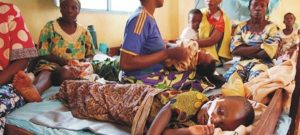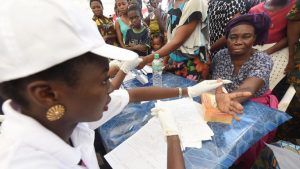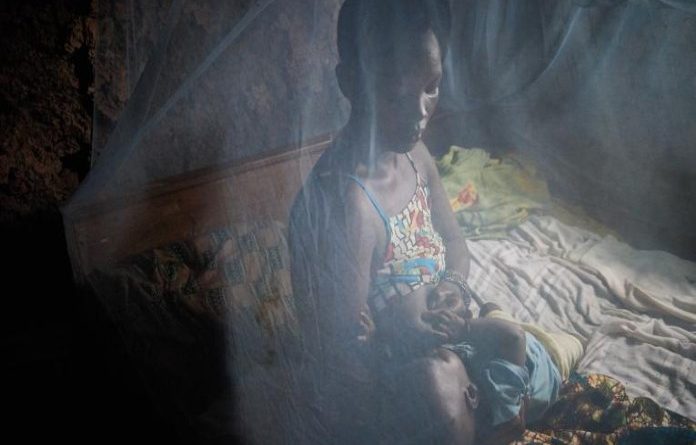As World marks Malaria Day, greater concern on impact of Covid-19 in sub-Saharan Africa
By Anietie Udobit
Every April 25, the world is reminded of millions of human population who have been ‘unripely wiped’ out of existence by the scourge of malaria. This year 2020, a grassroots campaign that aims to keep malaria high on the political agenda, mobilize additional resources, and empower communities to take ownership of malaria prevention and care, is launched, themed: “Zero malaria starts with me”.
In recent years, campaign against malaria has ground to a standstill. WHO’s World malaria report 2019, shows no global gains in reducing new infections over the period 2014 to 2018.
And so, the “Zero malaria” campaign is to engage all members of society: political leaders who control government policy decisions and budgets; private sector companies that will benefit from a malaria-free workforce; and communities affected by malaria, whose buy-in and ownership of malaria control interventions is critical to success.
With greater concern of the world towards minimizing the impact of Covid-19 pandemic, campaign against malaria may likely become a less or non-issue.
Although WHO has urged countries to move fast and distribute malaria prevention and treatment tools at this stage of the COVID-19 outbreak in sub-Saharan Africa, and to do their utmost to safely maintain these essential malaria control services, it is not clear, if that will be taken serious.
The world health body has raised concern, that under the worst-case scenario, in which all insecticide-treated net (ITN) campaigns are suspended and there is a 75% reduction in access to effective antimalarial medicines, the estimated tally of malaria deaths in sub-Saharan Africa in 2020 would reach 769 000, twice the number of deaths reported in the region in 2018. This would represent a return to malaria mortality levels last seen 20 years ago.
According to the World malaria report 2019, sub-Saharan Africa accounted for approximately 93% of all malaria cases and 94% of deaths in 2018. More than two-thirds of deaths were among children under the age of five.

The shift in focus to COVID-19 is becoming worrisome as the region soon enters [the] monsoon season with an expected surge in malaria cases.
Fortunately, to date, the number of reported cases of COVID-19 in sub-Saharan Africa has represented only a small proportion of the global total, though cases are increasing every day. This means that countries across the region have a critical window of opportunity to minimize disruptions in malaria prevention and treatment and save lives at this stage of the COVID-19 outbreak.
The COVID-19 pandemic has led to a surge of interest in certain drugs to treat the disease. This includes hydroxychloroquine and chloroquine, oral drugs known as treatment against malaria and other conditions, such as lupus.
These drugs are part of the World Health Organization’s “Solidarity trials,” and in 35 ongoing clinical trials, according to a recent study that reviewed a list of known online clinical trial registries. The U.S. Food and Drug Administration has also given emergency use authorization for these drugs’ usage for treatment or prevention of COVID-19.
There are concerns that surge demand for these drugs could lead to shortages and availability for those who need it, despite limited information of its effectiveness. While it has yet to be proven safe and effective for COVID-19 treatment, governments have started placing large orders of these drugs.
It then means that if chloroquine is eventually proven safe and effective for treatment of COVID-19 there is fear that even with increased manufacturing there may not be enough to support malaria treatments when chloroquine is indicated.
Currently, there are shortages of commodities due to disruptions in production and supply chains. These disruptions can lead to patchy supply of quality-assured medicines which may open a door for poor-quality alternatives to infiltrate the supply chain. And it is the communities at the end of the road who are most at risk of accessing these substandard or falsified medicines.
Africa, a continent heavily burdened with malaria and poor health systems, is at high risk in these circumstances. There are increasing fears that COVID-19 could impact the fight against malaria, which claimed 405,000 lives in 2018, with Africa accounting for 94 percent of the global burden. The coronavirus is putting pressure on national health systems, and threatening the wellbeing of markets and businesses large and small.
According to the Global Fund, COVID-19 could derail progress on HIV, TB and malaria through disruption to access treatment or other interventions, or to supply chains of critical medicines and medical supplies. Experience from the 2015 Ebola outbreak in West Africa suggests that unless mitigating action is taken, additional deaths from existing diseases such as malaria can be comparable or greater than those from the outbreak itself.
Therefore, Preventive therapies for pregnant women and children must be maintained. The provision of prompt diagnostic testing and effective antimalarial medicines are also essential to prevent a mild case of malaria from progressing to severe illness and death.
Measures to deliver essential antimalarial commodities and services must be considered ahead of the rainy season, when malaria transmission is highest, although this is already being complicated by lockdowns and travel bans, restricting movements of health workers and causing some supply chain disruptions.
Anietie Udobit is a Journalist and Social worker; Editor of NewsDotAfrica and Executive Director of HELPALIVE CAREGIVERS




